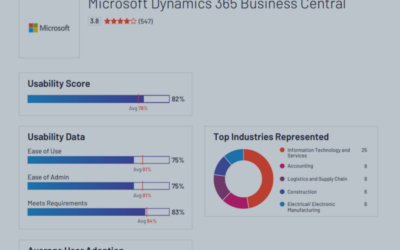Implementing a new ERP solution at your company can be transformative, but it comes at a price, of course. Exactly what does ERP cost? Given the complexities of ERP, you might have a hard time understanding how much you will pay for the solution. Are there ways you can get a clearer picture on how much you will pay for ERP? Yes. Let’s discuss.
ERP cost, generally speaking…
There are general estimates out there for how much ERP will cost, and those estimates are quite broad. For the average mid-sized business, estimates place the overall cost of ERP at anywhere from $150,000 to over $750,000. That’s a lot of wiggle room. Another number you will see is an estimate of $7500 per user. While these numbers provide some guidance, you need to answer some central questions about your project before you can get near true cost.
Choosing the pricing model
For some businesses, this comes down to what the business wants. Do they prefer this cost be an ongoing operational expense or an upfront capital investment? This decision is a matter of scale. Larger businesses with a robust, existing infrastructure (and larger coffers) can withstand the upfront cost of on-premise systems with ease. For them, the advantages of owning and controlling their ERP solution outweigh the upfront costs and the costs of ongoing maintenance. SMBs gravitate towards cloud-based systems with SaaS subscription models. Pricing based on the number of users or transactions allows SMBs to scale up or down as needed, and they can avoid a significant, upfront investment.
Assess your existing infrastructure, as well as your user base for the next three to five years to determine how your business may grow. From there, you can determine which of these two pricing models suits your needs.
Which modules do you need?
Not all ERPs are created equal. In fact, ideally, they are a bespoke fit for a business. Of course, customizing a solution will up costs. What to do? First, consider what modules go into an ERP and determine what you really need. ERP modules can include:
- Accounting
- Ecommerce
- Human Resources
- Project Management
- CRM
- Supply Chain Management
- Order Management
- Inventory Management
- Warehouse Management
- Finance
- Procurement
Do you need all or just a few of those? There are industry-specific solutions out there that bring together the modules you will need to get the job done in your space without bells and whistles. These “one size fits all” solutions can be a great way to get what you need without upping the costs.
The costs you can’t plan for.
There will be unexpected ERP costs, even with sufficient planning. A good idea, therefore, is to plan for that contingency in your initial estimates. Unexpected costs can pop up anywhere, but with ERP, you will see them most often in training (and retraining), data migration, and customizations. Planning for around 10% in contingencies in your budget will give you the buffer you need for these unexpected costs.
Making the move to ERP can bring down operational costs through increased efficiency and productivity, delivering great ROI and a lower TCO over time. If you have had your own experiences with cost estimates and ERP, let us know below. And if you would like to explore your own ERP solution, head over to this webpage to see how you can build your own affordable and powerful approach to ERP.




